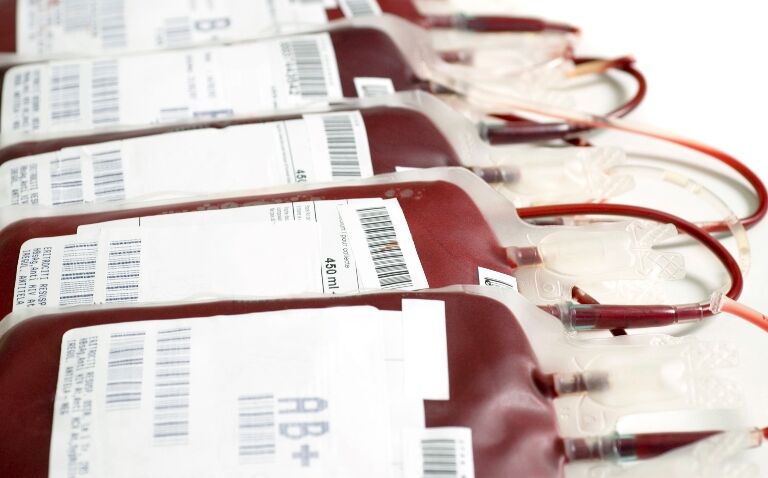A new type of ‘blood product powder’ that can help the blood to clot naturally in patients who are at higher risk of bleeding during complex cardiac operations is the subject of a new clinical trial.
If successful, it could significantly cut the need for blood products, improve outcomes and remove the need for blood to be cross-matched between donor and recipient.
The powder – a type of fibrinogen concentrate – is created from waste products in donated blood, which are separated, dried and stored in small vials at room temperature.
Therefore, as well as having a potential clinical benefit, the powder takes up less storage space and has a much longer shelf-life – around two years compared to two months.
Professor Andrew Klein, consultant anaesthetist and the study lead at Royal Papworth Hospital, said: ‘If a patient bleeds at the end of their operation, we would normally give them donated blood, such as cryoprecipitate which helps the blood to clot, and red blood cells and plasma to replace their lost blood.
‘This new type of “powder“ is infused into patients before bleeding occurs, with the hope it prevents bleeding in the first place.’
If this can be achieved, ‘the impact could be significant’, he said, adding that ‘people who do not need transfusions typically have better outcomes, fewer complications, a shorter length of stay in hospital and quicker recovery’.
The double-blind study is being conducted at 13 hospitals across five European countries, with the first patient recently recruited at Royal Papworth Hospital NHS Foundation Trust in Cambridge, UK.
In total, it is hoped that 620 participants will be recruited to the study across Europe. They will all have blood that is less likely to clot and therefore be more likely to experience a bleed during or after surgery. Some patients will receive the drug while others will receive a placebo.
The study is supported in the UK by the National Institute for Health and Care Research.
According to Professor Klein, around 12,000 patients require a blood transfusion during or after surgery in the UK each year – almost a third of the total number of patients undergoing heart surgery.










